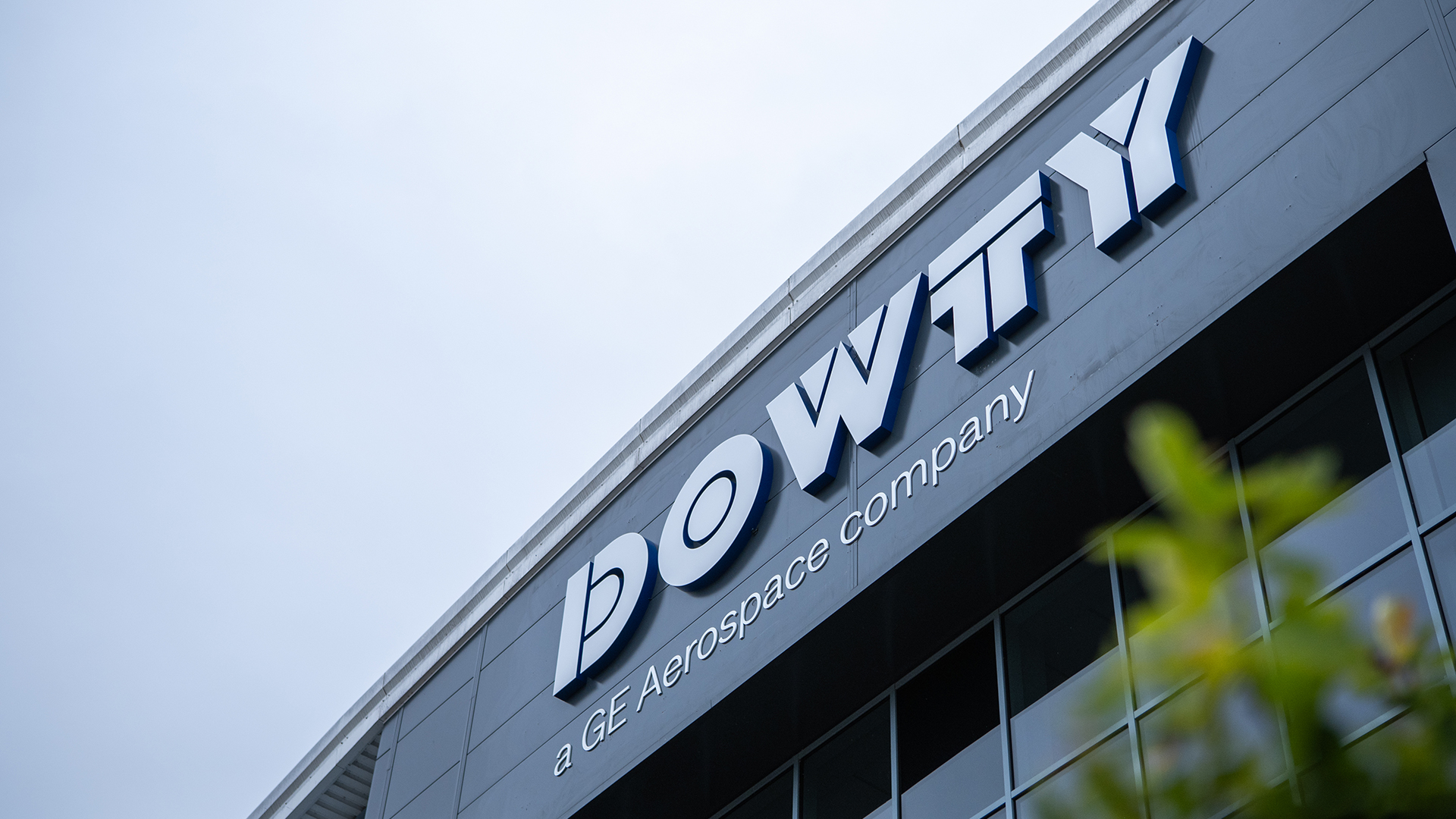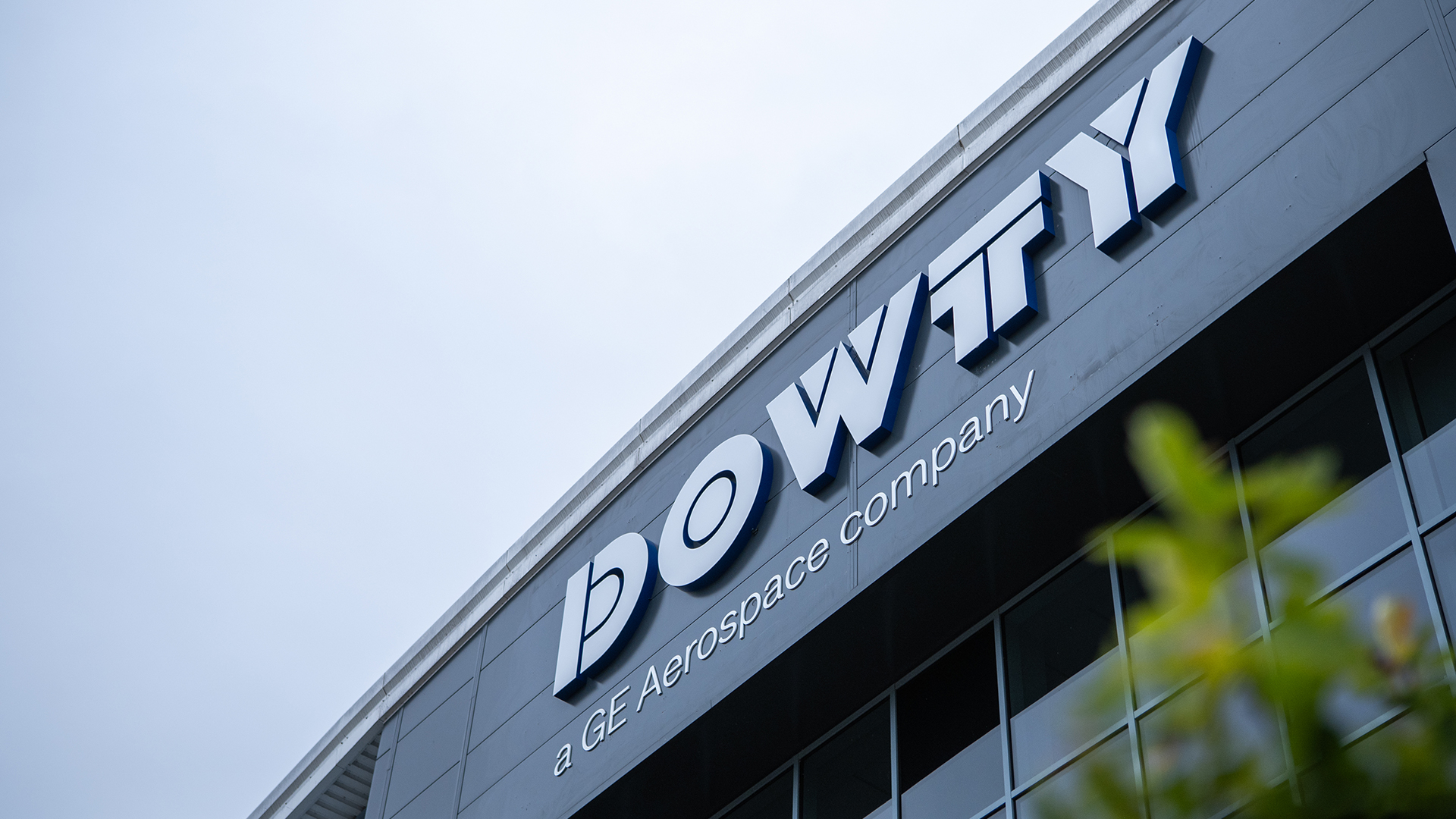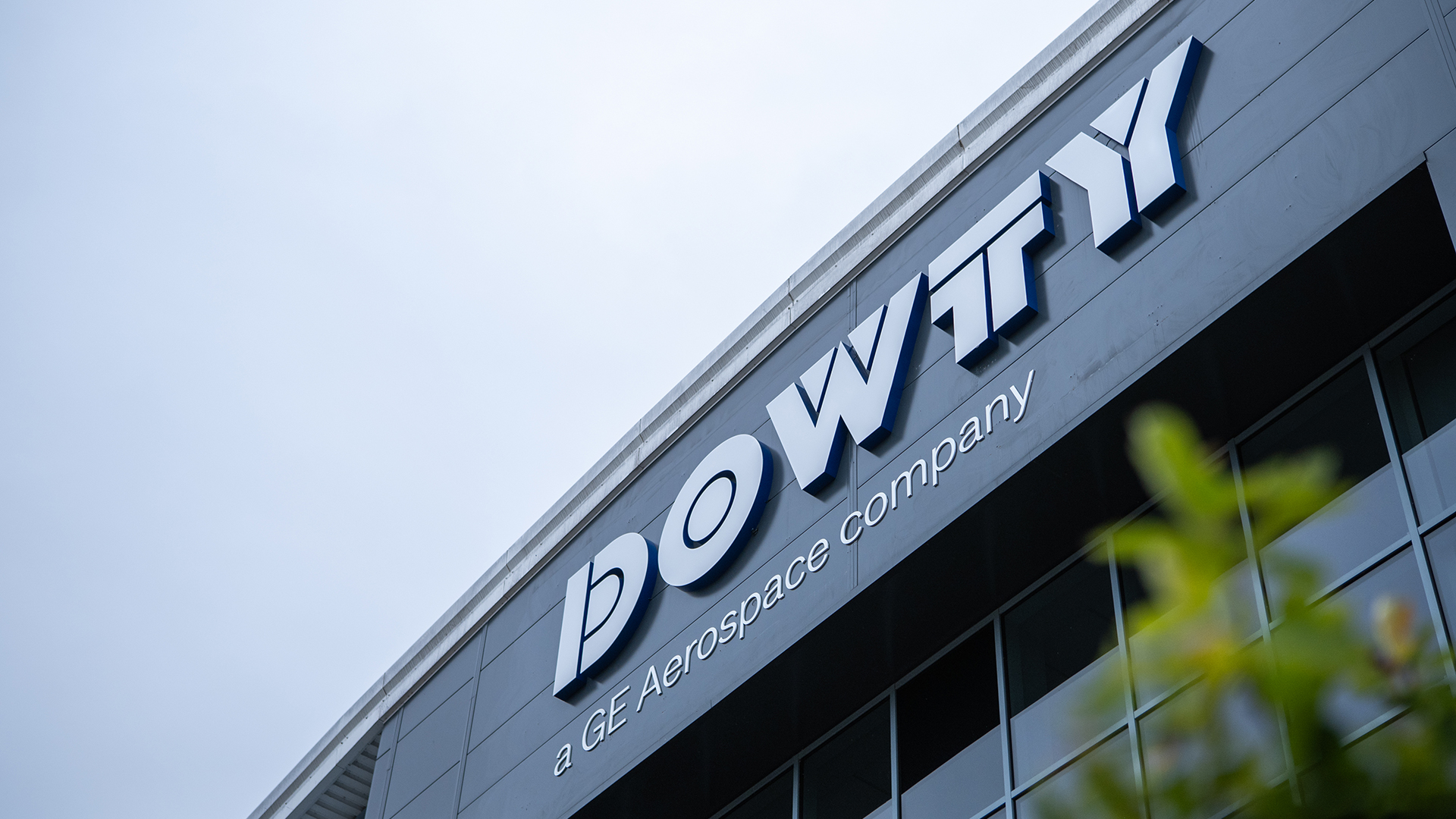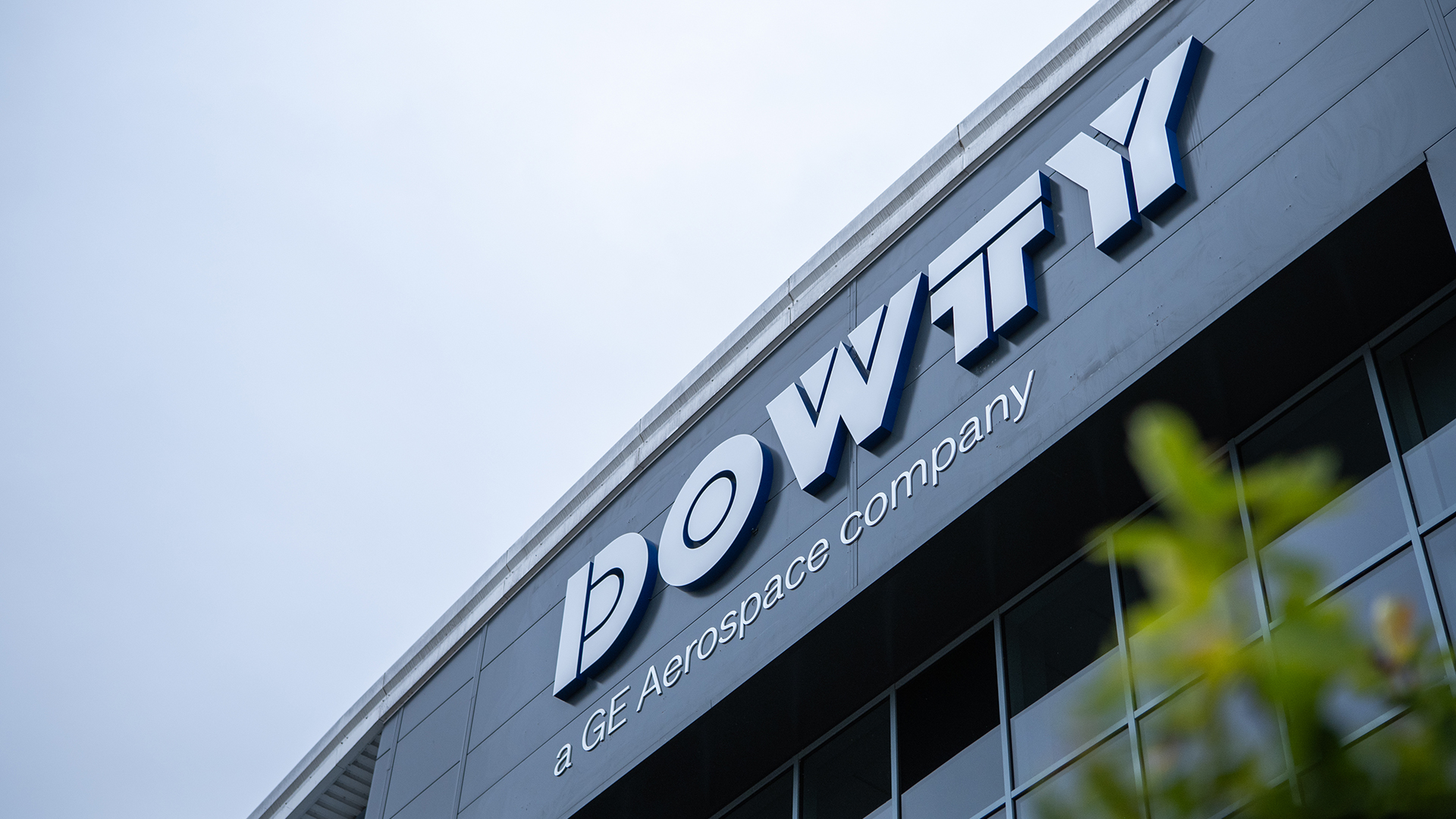Digital Propulsion: Significant UK R&D programme positions Dowty Propellers and its customers for world-beating, sustainable, next generation hybrid platforms
July 06, 2021
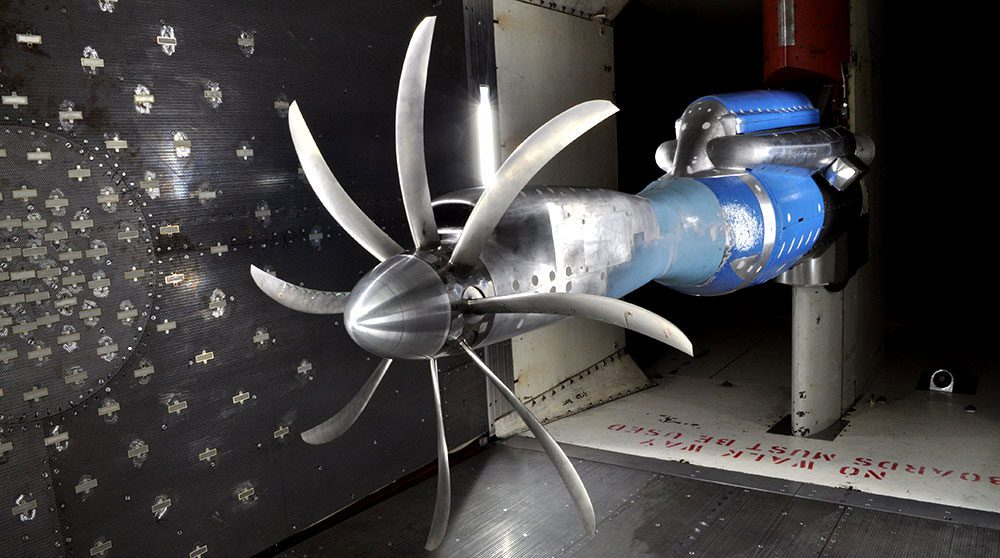
Gloucester, UK – Dowty Propellers, a global leader in composite propeller systems, has today announced the successful completion of its largest ever propeller R&D programme.
Dowty led the four-year Digital Propulsion (DigiProp) research and development programme in collaboration with three of seven of the UK’s High Value Manufacturing Catapult centres. This was an ambitious £20m project, part funded by the UK government, that sought to innovate every aspect of the design, manufacture and testing of its propeller systems.
Dowty Propellers collaborated with three UK innovation centres on the DigiProp project. The National Composites Centre (NCC), The Manufacturing Technology Centre (MTC) and The University of Sheffield’s Advanced Manufacturing Research Centre (AMRC); all members of the High Value Manufacturing Catapult. The partners offered subject matter expertise on both established and emerging technologies, allowing Dowty Propellers to unlock some of the best next generation capabilities and innovations that the UK has to offer.
“This project has delivered innovations in propulsion performance and cost through design and productivity which has helped to transform R&D for propellers,” said Mark Scully, Head of Technology for Advanced Systems & Propulsion at the Aerospace Technology Institute. “With the assistance of the High Value Manufacturing Catapult partners, the manufacturing innovation has been deployed into the new state-of-the-art Dowty facility in Gloucester. This provides an excellent foundation for Dowty and the UK to secure future sustainable aerospace opportunities.”
Some of the many areas explored with partners during the project include:
- The introduction of a digital twin during the development of Dowty Propellers’ new factory not only optimised the factory’s footprint but also identified process bottlenecks. The outputs deliver reduced manufacturing time and energy consumption, improved first time yield performance, and accelerated time to market for customers.
- Composites and manufacturing expertise transferred the complex technology of triaxial braiding into industrial reality, leveraging the directional properties of advanced thermoplastic composites to deliver performance and strength, while maximising the benefits of lightweight properties to enable an overall blade weight reduction. Thermoplastic composites can also be recycled by being melted down and formed into another product, therefore reducing waste and reusing tooling, supporting our drive to a carbon neutral future.
Dowty Propellers is now beginning to use the next generation technologies realised in DigiProp for evolving aircraft applications and to target next generation platforms. Potential customers are benefiting from its ability to support customer attribute trade studies with short turnaround time on performance analysis.
DigiProp would not have been possible without support and funding from the ATI Programme, a joint Government and industry investment to maintain and grow the UK’s competitive position in civil aerospace design and manufacture. The programme, delivered through a partnership between the Aerospace Technology Institute (ATI), Department for Business, Energy & Industrial Strategy (BEIS) and Innovate UK, addresses technology, capability and supply chain challenges.
About Dowty Propellers
Excelling in aero-acoustics and whole life maintenance costs, Dowty Propellers is a leader in electronically controlled, all-composite propeller systems. Its products are used in applications that range from commercial airliners and military airlifters to multi-role seaplanes and marine hovercraft. With a proven record of product development, introduction and support, Dowty Propellers continually invests in technologies, production capabilities and human resources – resulting in propeller systems that are safe, efficient, and reliable. Its history of firsts-to-market includes the all-composite propeller blade and full-authority digital propeller control. More than 23,000 advanced composite blades have been delivered to date by Dowty Propellers, with the lead blade logging over 45,000 hours of flight time.
About AMRC
The University of Sheffield Advanced Manufacturing Research Centre (AMRC) is a world-class centre for research into advanced manufacturing technologies used in the aerospace, automotive, medical and other high-value manufacturing sectors. The AMRC has a global reputation for helping companies overcome manufacturing problems and is a model for collaborative research involving universities, academics and industry worldwide. Combining state of the art technologies with the AMRC’s expertise in design and prototyping, machining, casting, welding, additive manufacturing, composites, robotics and automation, digital manufacturing and structural testing, has created a manufacturing resource far beyond anything previously available in the UK. The AMRC is a member of the High Value Manufacturing Catapult, a consortium of leading manufacturing and process research centres, backed by the UK’s innovation agency, Innovate UK.
About MTC
The Manufacturing Technology Centre (MTC) was established in 2010 as an independent Research & Technology Organisation (RTO). Its primary focus is to ensure that great ideas become reality and don’t fall into the manufacturing abyss known as the ‘valley of death’. They exist to prove innovative manufacturing processes and technologies in an agile environment in partnership with industry, academia, and other institutions. The MTC is part of the High Value Manufacturing Catapult (HVMC), which is sponsored by Innovate UK.
About NCC
The National Composites Centre (NCC) is one of seven centres that form the High Value Manufacturing Catapult and focuses on accelerating the adoption of high-value, sustainable engineering solutions in composites, in order to stimulate growth, and enhance capability for the benefit of the UK. The NCC has over 350 specialist composites engineers based at its facility and offers open access to cutting edge digital manufacturing technology for the design, and development of new composite products pulling through technology from the lab to large-scale production.
